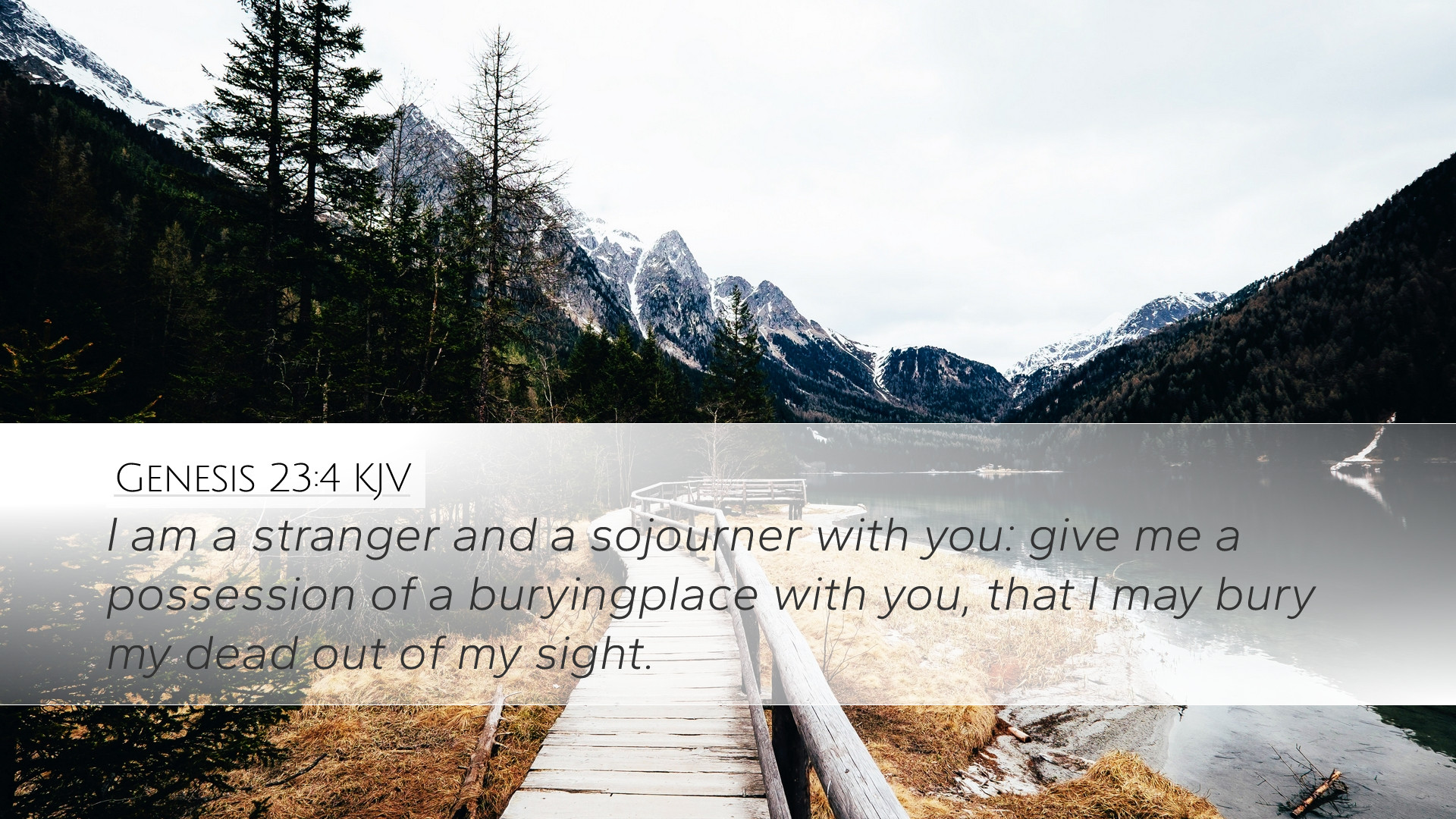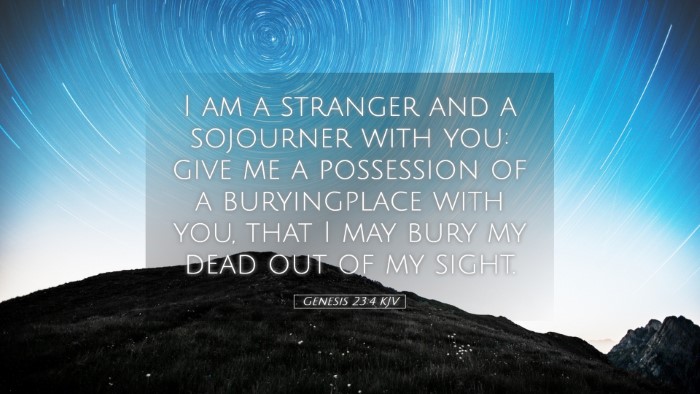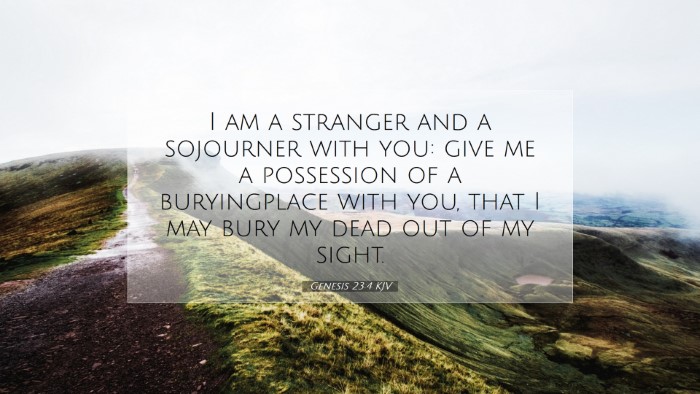Commentary on Genesis 23:4
Text of Genesis 23:4 (KJV): "I am a stranger and a sojourner with you: give me a possession of a burying place with you, that I may bury my dead out of my sight."
Introduction
This passage marks a pivotal moment in Abraham's life, illustrating his status as a foreigner in the land of Canaan and establishing the beginnings of his legacy. It reveals profound themes of land ownership, identity, grief, and the hope for resurrection.
Contextual Background
Abraham's request for a burial site is bathed in the context of his recent loss—his beloved wife Sarah. By engaging with the Hittites, Abraham acknowledges his status as an outsider in this land promised to him by God.
Significance of the Burial Place
The act of burial holds great social and theological significance. A burial place was not merely a physical location; it was a place of honor and remembrance. Through this request, Abraham expresses his deep connection to Sarah and outlines a permanent tie to the land.
Insights from Matthew Henry
Matthew Henry emphasizes several critical points:
- Stranger and Sojourner: Abraham's identification as a stranger reflects his faith in God's promises. He was aware of the temporary nature of his stay on earth, which resonates with the broader Christian understanding of earthly existence.
- Respectful Approach: Henry points out Abraham's humility in requesting land rather than demanding it, showing reverence for the local customs and the people he interacts with.
- Hope Beyond Death: The request for a burial site conveys the belief in life after death and the importance of a sacred place for remembrance.
Insights from Albert Barnes
Albert Barnes offers additional clarity on the implications of Genesis 23:4:
- Cultural Context: Barnes outlines the significance of negotiating for land in ancient times, reflecting the norms and values of Near Eastern society.
- Legacy and Land: He notes that securing a burial place also signifies the beginning of Abraham's claim to the land, as it would eventually house his descendants.
- Symbol of Faith: Abraham's act demonstrates a profound faith, as this request comes during a time of personal loss yet signifies hope for the future.
Insights from Adam Clarke
Adam Clarke offers a comprehensive perspective on the theological ramifications of this verse:
- Covenantal Promises: Clarke relates this request to God’s promise of land to Abraham, showing that even in mourning, belief in divine promises persists.
- Importance of Memorial: Clarke highlights the communal aspect of burial, noting that it not only reflects mourning but also allows for the community to remember and honor the deceased.
- Legal Precedent: He discusses the significance of formal agreements in land transactions, underscoring that Abraham's respectful request established a legal basis for possession within Canaan.
Thematic Reflections
1. Identity and Belonging
Abraham’s assertion of himself as a "stranger" provides a rich theological basis for understanding the Christian notion of identity in Christ. Believers are called to view themselves as sojourners in this world, aspiring toward a heavenly home.
2. Grief and Hope
The request for a burial site mirrors the full spectrum of human experience, where grief coexists with faith. It encourages the community of believers to mourn while holding fast to the hope of resurrection.
3. Community and Relationships
From the communal response requested by Abraham, it’s evident that faith is not individualistic but is lived out within the context of relationships and community interactions, grounding individual faith within collective experience.
Conclusion
The request made by Abraham in Genesis 23:4 transcends a mere plea for land. It reflects an acknowledgment of his identity, an expression of respect for his wife's memory, and the foreshadowing of God’s promises. For pastors, students, theologians, and scholars alike, this verse serves as a poignant reminder of the interplay between faith, loss, and the hope of eternity.
Further Reflection Questions
- How does understanding Abraham’s identity as a sojourner influence your view of your own Christian walk?
- In what ways can we honor the memories of those we’ve lost while also nurturing hope in God’s promises?
- What role does community play in processing grief and celebrating life in the context of faith?


